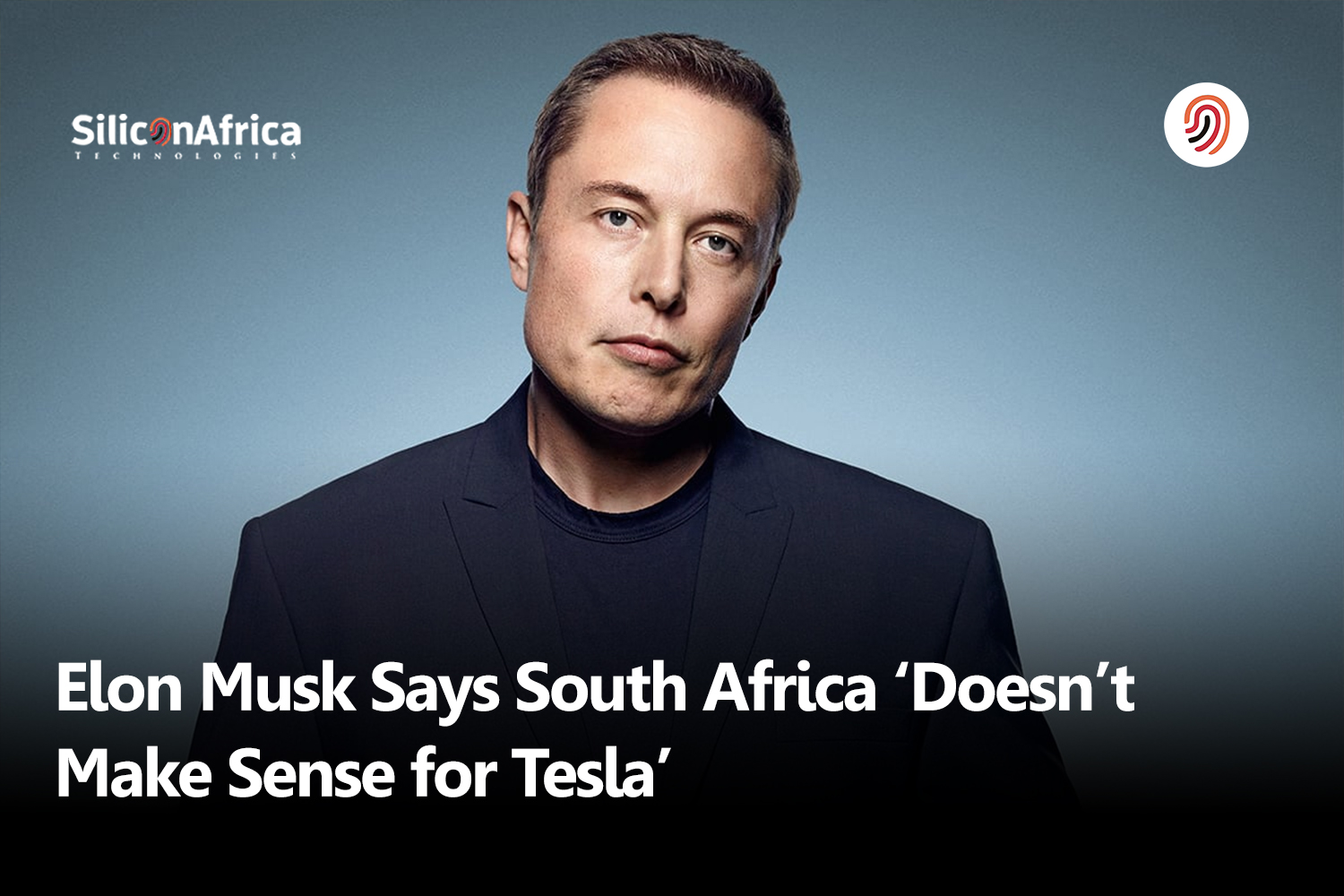Physical Address
60 Ekwema Cres, Layout 460281, Imo
Physical Address
60 Ekwema Cres, Layout 460281, Imo

With his recent remarks regarding the likelihood of Tesla entering the South African market, Elon Musk, the South African-born businessman and visionary behind SpaceX, Tesla, and other ground-breaking projects, has stirred controversy once more.
In this blog post, we will explore Elon Musk says Tesla doesn’t make sense for Tesla.
Tesla Inc, is an American global corporation that specializes in sustainable energy and automobiles. With its headquarters located in Austin, Texas, the company designs, manufactures, and markets solar panels, solar shingles, stationary battery energy storage systems ranging from residential to grid-scale, and battery electric vehicles (BEVs).
Martin Eberhard and Marc Tarpenning founded Tesla Motors in July 2003. Nikola Tesla, an electrical engineer and inventor, is honored by its name.
Elon Musk became the biggest stakeholder in Tesla in February 2004 and was appointed CEO in 2008.
The company’s first automobile model, the Roadster sports car, was produced in 2008. The Model S sedan, Model X SUV, Model 3 sedan, Model Y crossover, Tesla Semi truck, Model X SUV, Cybertruck pickup truck, and Model Y crossover were the next models produced.
The Model Y was the world’s best-selling vehicle of any kind in 2023, and the Model 3 became the first electric car to sell one million units worldwide in June 2021.
Elon Musk, CEO of Tesla and SpaceX, has recently stated that South Africa “doesn’t make sense for Tesla” due to the high import duties on electric vehicles. This comes as a surprise to many, as Musk was born and raised in South Africa.
Musk’s comments came after trade, industry, and competition minister Ebrahim Patel announced that South Africa could start building electric vehicles using some of the $8.8 billion (R169 billion) of funding.
However, the lack of incentives and high import duties have discouraged Tesla from launching in the country.
Musk’s remarks about Tesla in South Africa were in response to a question from South African X user Ziyaad Mohomed on the X platform, formerly Twitter.
He explained that import duties are “super high” in the country to protect the domestic industry, but this doesn’t make sense for Tesla, given that electric cars are not locally made.
Musk’s statements echo his previous comments from 2019, where he mentioned that import duties are extremely high, even for electric vehicles.
Elon Musk’s comments have sparked debate among South Africans, with some arguing that he is overlooking the country’s potential.
They point to South Africa’s abundance of natural resources and skilled workforce as assets that could benefit Tesla. Others argue that the country’s current economic and political climate makes it difficult for businesses to succeed.
South Africa has been struggling with high unemployment and rising inflation in recent years, which has impacted its ability to attract foreign investment.
In addition, the country has been experiencing political instability and corruption scandals that have eroded confidence in its leadership.
Despite these challenges, some believe that South Africa has the potential to become a manufacturing hub for electric vehicles due to its abundance of lithium, cobalt, and nickel, all key materials used in the production of electric car batteries.
However, others argue that the country’s unreliable electricity supply and lack of high-speed internet infrastructure make it difficult for businesses to thrive.
The high import duties on electric vehicles in South Africa have been a point of contention for electric vehicle makers, who have complained about the country’s tax regime to protect the local manufacturing industry.
A recent MyBroadband analysis showed that importing a R1.3-million Tesla Cybertruck (incl. VAT) would add roughly R622,000 in extra taxes if imported to South Africa.
Despite the growing uptake of electric vehicles in South Africa, Tesla fans may have to wait longer for the brand to become available in the country.
The lack of incentives and high import duties have made it difficult for Tesla to launch in the country, and Musk’s recent comments reaffirm this stance.
There are indications of improvement in spite of the difficulties. Tax exemptions and lower import taxes for specific models are among the incentives the South African government has put in place to encourage the use of electric vehicles. Although they are mostly found in cities, the nation also has an expanding network of charging stations.
Although South Africa’s EV aspirations may suffer from Tesla’s absence, it does not necessarily mean that the road is over. Local efforts to provide domestic EV solutions are starting to emerge, while other EV manufacturers are looking at market prospects.
To foster an environment that is favorable to the adoption of electric vehicles, the South African government, industry stakeholders, and consumers must collaborate. This entails resolving issues with infrastructure, offering financial incentives, and spreading knowledge about the advantages of EVs.
South Africa lost out on a chance when Elon Musk decided to keep Tesla out of the country for the time being. It is not, however, a death sentence for South Africa’s electric vehicle revolution.
South Africa can still become a major player in the global EV scene with coordinated efforts and a supporting legislative framework.